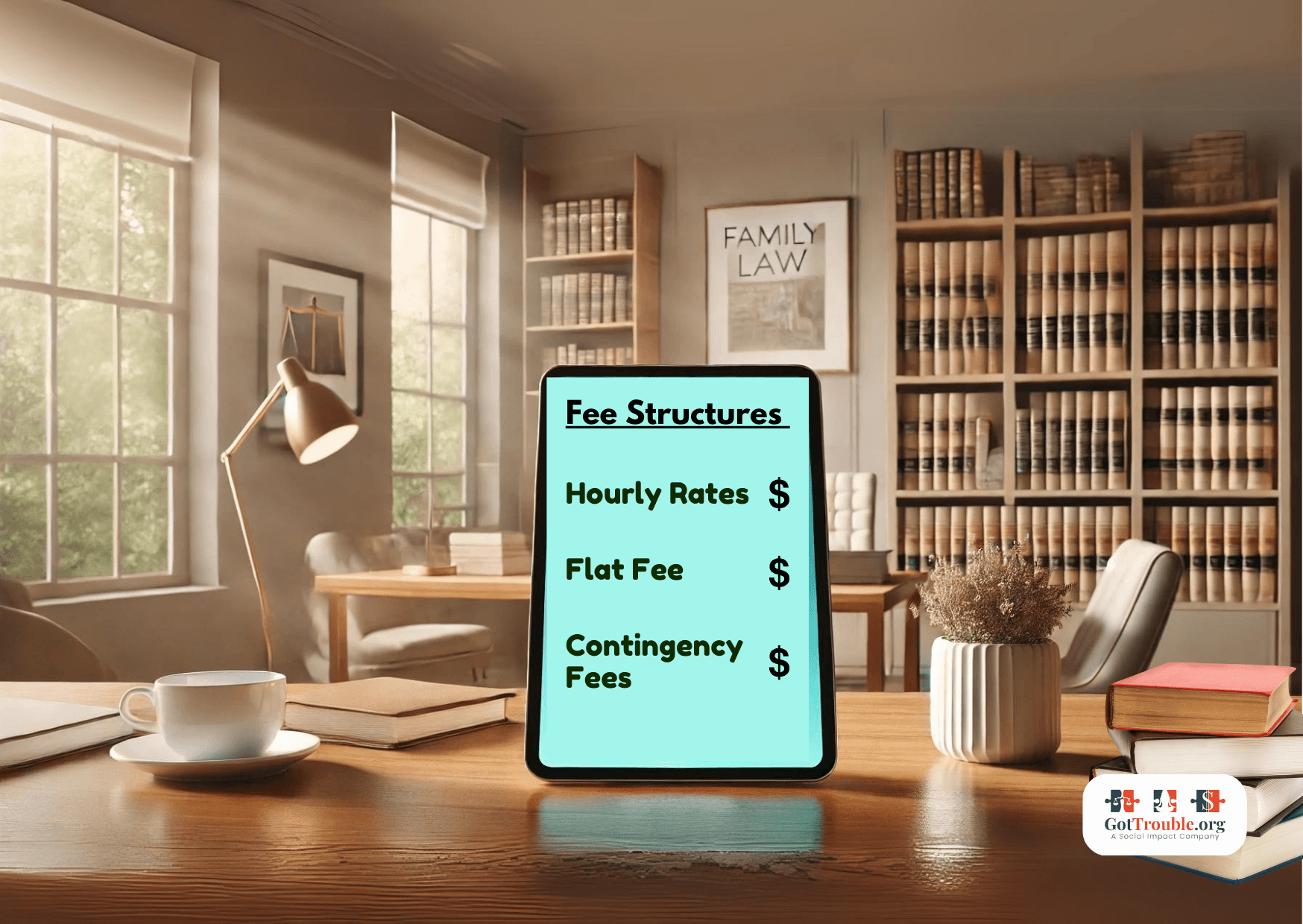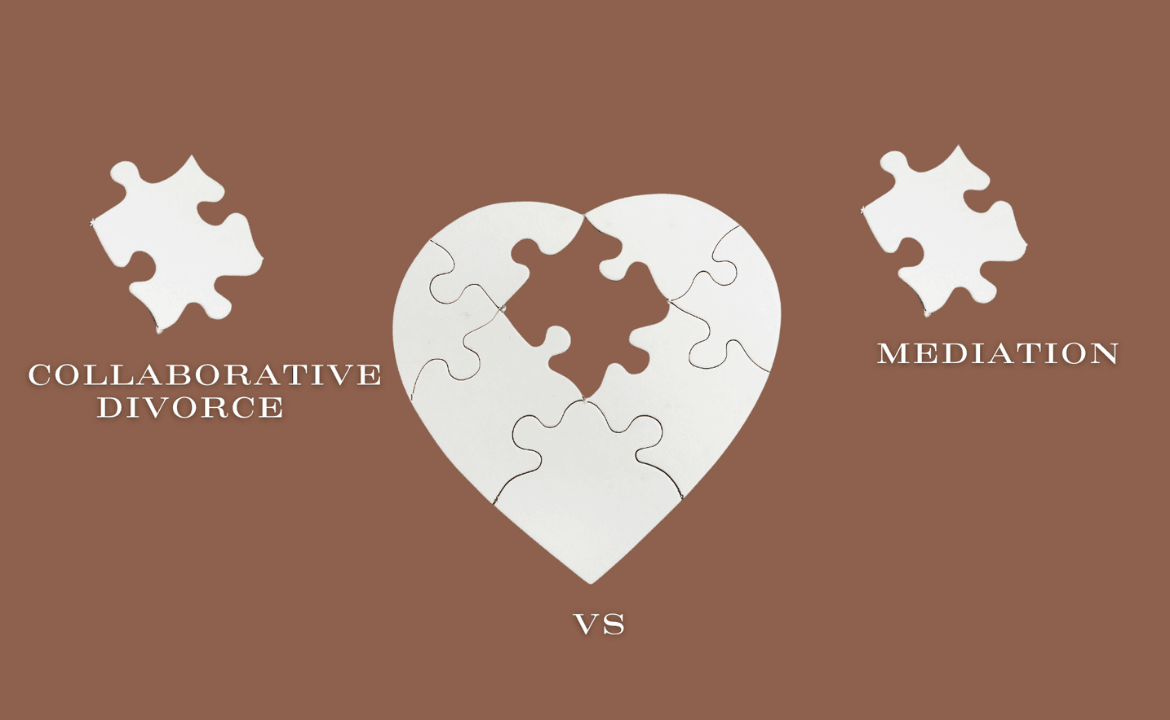Family law is a specific area of law that deals with matters related to familial relationships, including divorce, child custody, adoption, and domestic violence.
In many states, lawyers must undergo additional education and training to become state-certified family and divorce law specialists.
When faced with family-related legal issues, figuring out the costs of hiring a family law attorney will help you make a meaningful and realistic budget for these services and other related costs and expenses.
Understanding what influences attorney fees and what you can expect financially will also help you make an informed decision about selecting the right family and divorce law attorney to use.
Family law attorney fees can vary widely based on factors such as the attorney’s experience, the complexity of the case, and the geographical location.
This article delves into various billing structures, factors influencing costs, and strategies that will help you manage these family law expenses effectively.
Here are some key topics that are covered in this article:
- Different Fee Structures of Family Law Attorneys
- Factors Affecting Family Lawyer Costs
- Cost Breakdown for Common Family Law Services
- Tips on How to Manage Legal Costs
- Misconceptions and Fears Related to Family Law Attorney Cost
Different Fee Structures of Family Law Attorneys
Regarding family law, attorneys may employ different types of billing methods depending on the client’s needs and the kind of family law case.
Hourly Rates
Family lawyers usually charge between $150 and $500 an hour. The rates can vary based on the lawyer’s experience, reputation, and where they’re located. If a lawyer specializes in complex cases or works in a big city law firm, you can expect their fees to be higher.
Some family law and divorce attorneys offer flat fees for certain legal services. However, the amount of these flat fee retainers will depend on your case’s legal and factual complexity.
Hourly billing is the most common practice, but it, too, has pros and cons. Understanding these factors can help you choose the most suitable legal representation for different types of family law matters.
Billed Hourly:
- Pros: Offers flexibility; only pay for the time used.
- Cons: Costs can quickly add up, especially in complex cases.
Retainer Fees – Hourly Rate
A retainer fee is an upfront amount paid to secure an attorney’s services before commencing work on your case. This fee is typically placed in a special bank account called an attorney trust account and is used to cover the attorney’s hourly rates as well as specific costs and expenses as they arise.
In family law cases, a retainer fee is commonly used to fund the initial stages of legal representation, including consultations, document preparation, and court appearances.
Paying a retainer not only ensures that the attorney is available to provide legal guidance but also helps clients manage their legal expenses by clearly understanding the fees and costs involved from the outset.
Retainer fees can range from $2,500 to $10,000 or more, depending on the case’s complexity and how aggressively litigated the other side is in representing their client. In addition, not all retainers are refundable. It will depend on how the retainer fee agreement was structured and what the rules of professional conduct mandate in your state.
Retainer Fees – Hourly Rate:
- Pros: Ensures the attorney is available and provides a precise starting cost.
- Cons: The retainer may be non-refundable and may not cover all case expenses.
Flat Fee Services
Many family law attorneys prefer to charge a flat fee for predictable legal needs, such as drafting a prenuptial agreement or handling an uncontested divorce.
This approach has benefits. It sets clear expectations for legal fees and case costs for the client and the lawyer.
Clients appreciate knowing how much money will be required upfront, which helps them budget without worrying about surprise fees and expenses.
Flat fees also help attorneys work more efficiently on projects, making the process smoother and more predictable. This way of structuring fees and costs builds trust and transparency between clients and lawyers, making it a wise choice for less complicated and more predictable legal matters.
Flat Fee Services:
- Pros: Provides upfront certainty of fees and costs, helping with budgeting.
- Cons: It may not always cover unforeseen complications that arise later in the case.
Contingency Fees
While contingency fees are permitted in many other types of civil cases, under the current rules of legal ethics, specifically Model Rule 1.5(c)(1), lawyers cannot take most family law matters such as divorce cases, annulments, child or spousal support, and property settlements based on a contingency fee.
According to the rules of ethics, allowing contingency fee arrangements in family law cases could create conflicts of interest and compromise the integrity of the legal process.

Factors Affecting Family Lawyer Costs
Many factors can influence the costs of hiring a family lawyer, from the difficulty of your case to the specialiation of the lawyers practice.
Average Costs of Family Law Attorneys
Nationwide, experienced family law attorney fees can vary dramatically. A solo and uncertified family law specialist practicing family law with two or less years of litigating family law experience will cost substantially less than an established and certified family and divorce law specialist with two decades of family law experience.
Studies have also shown that large and prestiegious law firms in major cities, can charge hourly fees as high as $1,000 dollars or more for worked performed by senior parters.
However, it’s important to note that these costs can fluctuate based on the type of case, such as divorce, custody disputes, or adoption.
Attorney’s Experience and Reputation
More experienced attorneys especially those with a strong reputation in the legal community typically command higher fees. However, as they will be the first to tell you, their expertise can often lead to more favorable outcomes.
A family lawyer’s track record of successful outcomes can significantly influence the pricing structure, which most clients believe ensures quality legal representation. Or, at the very least, it is more emotionally comforting for the client.
Legal Tip
Complexity of the Case
High-asset divorces, contentious custody battles, and cases involving domestic violence can demand extensive legal time and investigative resources. These cases are typically high-intensity.
These situations typically require not only legal expertise but also financial and estate evaluators, psychological assessments, and sometimes the involvement of mediators.
As a result, the associated legal fees and additional costs can escalate quickly, placing a significant financial burden on the parties involved.
The multifaceted nature of such cases necessitates careful planning and a strategic approach to effectively navigating the challenges.
Financial Tip
[Financial Tip]Save Money – Strive for An Uncontested Divorce: If the partners are willing, an uncontested divorce is inexpensive in dollars and emotional costs. In an uncontested divorce, both spouses agree to all the essential terms of the divorce. In a contested divorce, the spouses cannot agree and must go through the divorce process. The uncontested divorce is accomplished by filing a joint divorce petition.[/FinancialTip]
Location
Cost differences for legal services can vary from state to state and region to region. This is due to different local economies and the availability of legal resources.
For example, in big cities like New York and Los Angeles, attorney fees can soar above $800 an hour because of high demand and the cost of living.
On the flip side, in rural or less populated areas, you might find average rates between $200 and $350. So, clients need to do their homework and think about local market conditions when planning their budget for legal help.
Statistic: Over the years, legal fees for family law have increased at different rates across states, with some states experiencing up to a 25% annual rate increase in recent years. For instance, Iowa saw a 25% rise, while rates in California increased by 15% within the same period.
Cost Breakdown for Common Family Law Services
Different family law services come with varying costs, which can be influenced by the specifics of the case and the services provided.
Divorce
The costs of handling a divorce can vary widely. An uncontested divorce might range from $1,500 to $5,000. In contrast, a contested divorce involving substantial assets could escalate to tens of thousands of dollars.
Child Custody
Child custody cases can be financially and emotionally draining. Child custody lawyer legal fees for these cases often start at around $3,000 and can increase significantly with the case’s complexity. Factors such as the number of children involved, the history of abuse or neglect, and parental relocation can all impact costs.
Adoptions and Guardianships
Legal fees for adoptions and guardianships typically start around $3,000 but can increase based on the situation’s legal complexities. Costs for adoption usually start at around $25,000 but can go up to $50,000 depending on the legal needs.
Domestic Violence Cases
Domestic violence cases require sensitive handling and can incur additional costs for protective orders and court appearances. The cost of hiring a family law attorney for these cases can start at around $3,000 and increase rapidly based on the specific circumstances.
Additional family law matters and estimated costs:
- Premarital Agreements: $2,000 – $5,000
- Legal Separation: $3,500 – $10,000
- Alimony/Spousal Support: Varies based on state laws and spousal income.
- Property Division: Varies on the complexity of the assets and the need for extensive expert witness consultations
Modification of Child Support Cases
Adjusting child support payments often requires an attorney to present changes in financial circumstances or living conditions that justify the modification.
The cost of modifying child support can vary, generally ranging from $2,500 to $5,000. This covers attorney fees for filing the motion, preparing documentation, and representing the client in court hearings.
Modification of Custody Cases
Changing a custody agreement involves legal filings and court appearances, like child support modifications. Costs for custody modifications can range from $3,000 to $5,000, depending on the complexity of the case, the level of dispute between the parties, and the attorney’s rates.
Custody and Child Support Enforcement Cases
Enforcement actions can be necessary when one party does not comply with a court-ordered custody or support agreement. Legal fees for enforcement can be substantial, mainly if the case requires extensive legal intervention or court appearances.
Clients can expect to pay anywhere from $3,000 to $6,000, depending on the specifics of the enforcement actions required.
TPO Matters (Temporary Protective Order)
Obtaining a Temporary Protective Order (TPO) typically involves urgent legal proceedings. Costs primarily include attorney fees for preparation and representation at the hearing. Depending on the urgency and complexity of the situation, these can range from $1,000 to $3,000.
TRO Matters (Temporary Restraining Order)
Like TPOs, Temporary Restraining Orders (TROs) are critical in situations involving immediate threats. The costs for obtaining a TRO are similar to those for a TPO and include attorney’s fees for quick action and representation during the hearing process, typically between $1,000 and $3,000.
Family Law Habeas Corpus
In family law, a writ of habeas corpus is a court order requiring the person in possession of a child to appear in court with the child for a contested hearing.
The costs for such legal actions can be significant, generally starting around $5,000, depending on the case’s legal demands and complexities.
Name Change Matters(Adult or Child)
Legal fees for handling a name change are usually less complex than other family law matters. A straightforward name change typically involves a flat fee ranging from $500 to $1,000. This fee covers the preparation of the necessary legal documents and court filing fees.
Tips To Manage Legal Costs
Effectively managing legal costs is crucial for minimizing financial strain while securing competent legal representation.
Budgeting for Legal Expenses
Understanding the billing structure and expected fees can significantly aid clients in budgeting effectively and avoiding financial surprises.
This proactive approach helps set aside the right amount of funds for services and fosters a clearer understanding of what to expect throughout the divorce and family law process.
If you are already in financial trouble, consider how to budget your living expenses and the importance of frugality.
If you need financial assistance, consider reaching out to state and federal support services.
Choosing the Right Attorney Is Not Always the Cheapest Attorney
Balancing cost with quality is essential when navigating legal matters. While it may be tempting to opt for a less expensive option, investing in a more qualified attorney may be better, especially if the case involves significant assets or complex legal issues.
A skilled lawyer brings expertise and a wealth of experience that can be invaluable in achieving a favorable outcome. In the long run, the right legal representation can save you time and money, making it a critical component of your legal strategy.
Alternative Dispute Resolution
Mediation or arbitration can save you a lot of money compared to traditional litigation. These alternative dispute resolution processes allow you to be more collaborative and get results faster without the long and expensive court process.
Mediation and arbitration save money and preserve relationships by open communication and focusing on win-win outcomes.
Legal Aid and Pro Bono Services
For those who cannot afford experienced family law attorneys, legal aid clinics and pro bono services offer an invaluable resource, ensuring legal access does not depend solely on one’s financial ability.
Statistic: Overall Cost Increase: The cost of legal services, including family law, has increased by approximately 351.68% from 1986 to 2024. This significant rise is due to an average annual inflation rate of 4.05%, much higher than the general inflation rate of 2.8% over the same period
Three Common Misconceptions about Family Lawyer Cost
Misconception #1: All family lawyers charge the same.
Reality: Fees vary depending on the lawyer’s experience, reputation, location, and complexity of the case.
Misconception #2: More expensive means better.
Reality: More expensive can mean experience but doesn’t always mean better service. Do your online research on the lawyer and get personal referrals to help you choose between family lawyers.
Misconception #3: Retainer fees pay for everything.
Reality: Retainer fees are upfront payments and may only pay part of the costs. More fees will be required as the case goes on.
Three Common Fears Related to Family Law Attorney Fees and Costs
Fear #1: The costs will be unknown and out of control.
Reality: Understanding different billing structures and getting detailed quotes can help manage and budget for legal costs.
Fear #2: Hiring a cheaper lawyer means I will lose my case.
Reality: A less expensive lawyer can still win. Evaluate their experience, approach, and fit for your case.
Fear #3: I can’t afford any legal help.
Reality: Legal aid societies and pro bono services are available to help those who can’t afford regular attorney fees so everyone has access to legal representation.
Bottom Line
If you have a family law issue, interview multiple divorce and family law attorneys to discuss their fees, services, and experience. This will help you find the right attorney who offers the best balance of cost, experience, and approachability for you.
To learn how to interview and size up a family and divorce lawyer and the specific questions to ask, read our article on retaining a divorce lawyer.




























